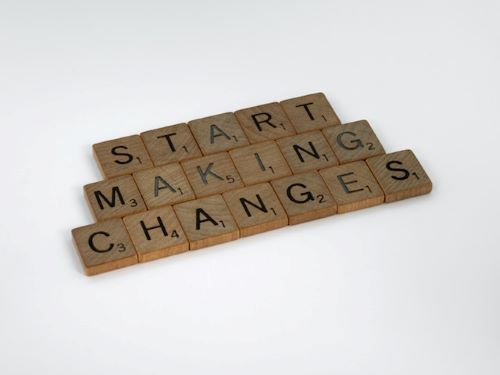10 Rules for Mastering the Mind for Positivity
As we step into a brand-new year, what if we could kickstart it with a fresh perspective on our mind and take back the control that our thoughts hold over our lives?

The human mind operates under a fixed set of rules which govern our experiences, decisions, and ultimately our well-being.
This New Year lets embark on a journey of understanding and empowerment, utilising these rules to control our mental landscapes and set the stage for a year of positivity.
1. The mind learns by repetition
Repetition creates long term memory and builds new neural pathways. Repeating a new habit of thought creates the strongest learning—and most learning—(like tying your shoes) relies on repetition. Through the repetition of positive affirmations you can watch as your mind becomes a breeding ground for optimism as new neural pathways as formed. – This video link shows you how neural pathways are formed in leaning and creating the thoughts that we think. https://www.youtube.com/watch?v=r1sDjWfDa4w
2. The mind cannot hold conflicting ideas, beliefs, or thoughts. They cancel each other out.
You cannot be happy and sad at the same time. If you say the opposite of what you feel, your mind has to believe this and make it become true. It’s like if you smile when you are sad the body releases happy hormones as your mind assumes you are happy. Trick your mind into believing you are happy and watch how it becomes second nature. A true example of fake it until you make it.
3. Whatever we focus on, we move towards (What is expected tends to be realised).
Focused attention acts as a magnet, drawing our actions and experiences toward the object of our concentration. Expectations, whether positive or negative, often materialise. Direct your focus toward your aspirations. By visualising your goals and expecting positive outcomes, you set the stage for your mind to turn those visions into reality.
4. Imagination is more powerful than knowledge when dealing with your own mind or the mind of others.
Imagination refers to the ability to form mental images, ideas, and concepts that are not immediately present to the senses just like when you imagine what it would be like to win the lottery. Unlike knowledge, which is based on what we’ve learned and experienced, imagination has the freedom to explore limitless possibilities and scenarios and even possibly draw them to you. If you imagine that you are not looking forward to a party for example you might end up grumpy when you get there and not enjoy yourself as that is what you expected to happen.
Tap into your imaginative prowess. Envision the life you desire, and let your imagination pave the way for creative solutions and boundless possibilities.
5. In a battle between emotion and logic, emotion always wins.
Emotions hold significant sway over decision-making despite the rationality of logic, emotional responses often take precedence in influencing our actions and choices. Which is probably why I always chose the exciting boyfriends that were bad for me. Decisions related to relationships, career choices, and even consumer behaviour are often driven by emotional considerations such as love, fear, happiness, or desire. And it’s for this reason we often make the same mistakes over and over even when we know we should make better decisions for ourselves. We sometimes buy things because we think the object such as a new handbag will make us happy or we buy in fear as we do not want to miss out.
Acknowledge the emotional force within you…
6. Your mind always does what it thinks you want it to do.
Your mind is not a separate entity but an integral part of your cognitive and psychological processes. Your mind is your devoted servant, working tirelessly to fulfil what it perceives as your desire. Clearly communicating our intentions is crucial to guiding its actions. For example if you keep hearing yourself say ‘I am poor’ you mind has to think ‘ok you are poor’ and it will do what it can to give you more of that. To counteract this try saying ‘I am so lucky that I have my home, or my sight or my coat that keeps me warm’ as you do more of this you will notice more things to be grateful more and this will move you away from feeling of lack and you will get more of what you want.
If you tell your mind you have enough but you would like more of it this will bring you to a true place of abundance.
Express your desires and intentions explicitly, enabling your mind to align its actions with your truest aspirations.
7. Your mind works to move you away from pain and towards pleasure.
Pleasure-seeking and pain-avoidance are inherent motivators. Understanding this principle can help you align your goals with the way the mind works.
Identify sources of joy and pleasure in your pursuits, encouraging your mind to propel you toward positive experiences.
Unfortunately, this is also why people can lean towards actions that masks our feelings like eating, drinking and drug taking as it moves us away from our pain and into temporary pleasure, if this is the case it is wise to work on this issue with an expert.
8. Your mind responds to the pictures you construct and the words you tell it. The more vivid the picture, the more powerful the response.
Visualisation and language play pivotal roles in shaping the mind’s responses. Creating clear, compelling mental images amplifies the impact of our words.
Paint vibrant mental pictures of your goals. Use vivid language to describe your aspirations, allowing your mind to respond with heightened enthusiasm and determination. Say things like ‘I really love to eat healthy it makes me fit and amazing’ ‘I really love receiving money’ etc and get into the picture of having more.
9. Your mind does not care if what you tell it is good, bad, true, false, healthy, unhealthy, right, or wrong. It accepts and acts on your words regardless.
The mind operates without judgment. It accepts information without discrimination. You have the responsibility of selecting the thoughts and words we feed our mind.
Choose your words wisely. Whether positive or negative, your mind responds to the language you feed it. Choose words that nurture positivity and growth. Watch how you feel if you find yourself telling yourself off. Depression stems from the harsh, hurtful words we say to ourselves. Watch how you speak to yourself and see if we can move to more gentle kind words. Also say to yourself ‘I love you’ ‘You are worthy’ you don’t need anyone else to tell you this, you can do a perfectly good job of telling yourself this. Your mind doesn’t mind who is saying it, your mind just knows you are loved and in turn you will feel good.
10. The mind loves what is familiar. Your mind is hardwired to resist what is unfamiliar and return to what is familiar.
The mind craves familiarity, explaining the challenges encountered when trying to break away from established routines or habits even when they hurt us. As an example I always found myself going out with good looking alcoholics although I knew they were bad for me, they felt familiar and therefore, in some strange way they felt safe as they were what I knew i.e. they were familiar. It took me a long while before I found myself comfortable around boyfriends that I felt were less ‘exciting’ which looking back probably really meant ‘unpredictable’.

My advice is to embrace the change consciously.
Understand that the unfamiliar may initially be challenging, but by persistently choosing positive changes, you pave the way for your mind to create new, uplifting familiarities.
This New Year, arm yourself with the knowledge of these ten rules of the mind. By doing so, you not only gain insight into the workings of your mental realm but will also empower you to navigate your life. with purpose and positivity.
Main – Photo by Kelly Sikkema on Unsplash




